Apiculture for more resilient communities around Ethiopian Lake Hawassa
The Lake Hawassa catchment in Southern Ethiopia is prone to erosion due to the property of the soil and the topography of the area, however immensely exacerbated by human activity. The expansion of small- and large-scale farms, conversion of wetlands into various land uses and rapid expansion of population and unplanned settlements have resulted in accelerating land degradation – and by consequence siltation of the lake due to sediments being washed into the water.
Stakeholders from public authorities, private companies and civil society have joined forces in 2018 under the “Protecting Lake Hawassa Partnership” to reduce risks affecting the lake collectively across sectors. One task force under the partnership promotes afforestation and soil erosion control measures to tackle the erosion and land degradation challenges.
Training 40 households on beekeeping and the creation of their own businesses
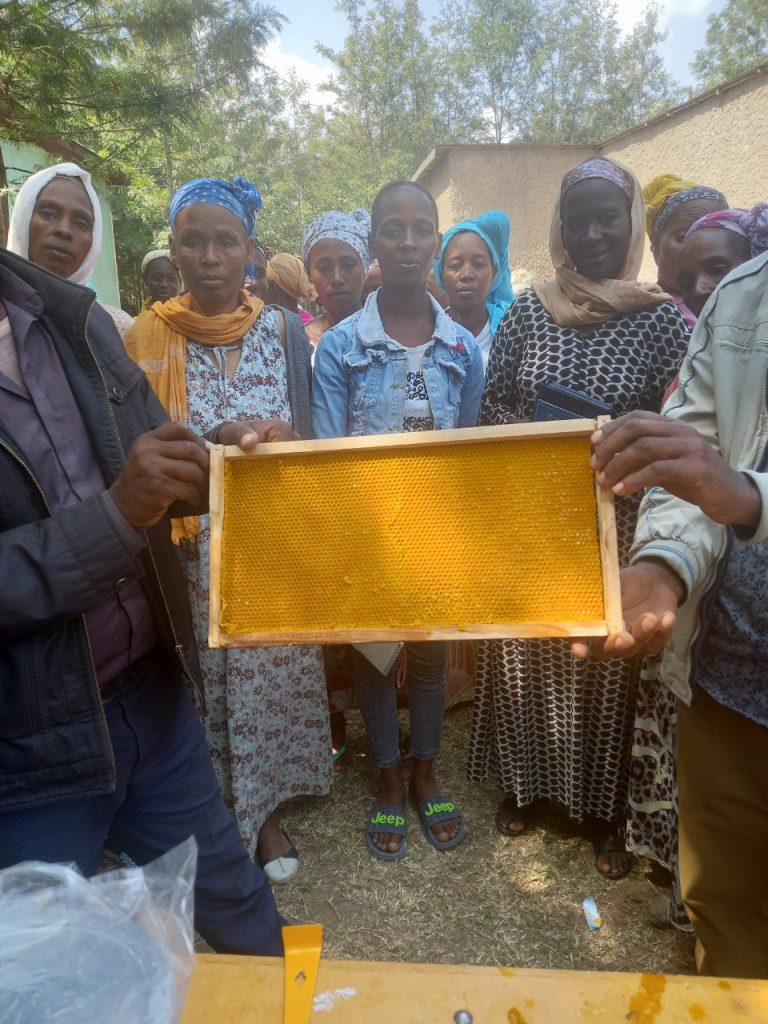
To increase the impact of ecosystem services from the newly forested areas, as well as to provide local communities with alternative income opportunities which are not damaging the environment – the area is threatened by widespread illegal sand mining- partners have upscaled apiculture activities. Previously, ten households had received three beehives each under the partnership, increasing communities’ income opportunities. Creating alternative livelihoods like apiculture or fruit production is an essential part of partnership activities, as environmental protection can only be successful in the long term if local communities either make a living from them or can generate income in an alternative way. An additional forty households were hence trained in beekeeping and business skills and provided with necessary equipment like modern beehives through the partnership. The forty households will also be supported in organising themselves into a cooperative for marketing their honey products as a group, increasing their market power.
Encouraging women towards apiculture
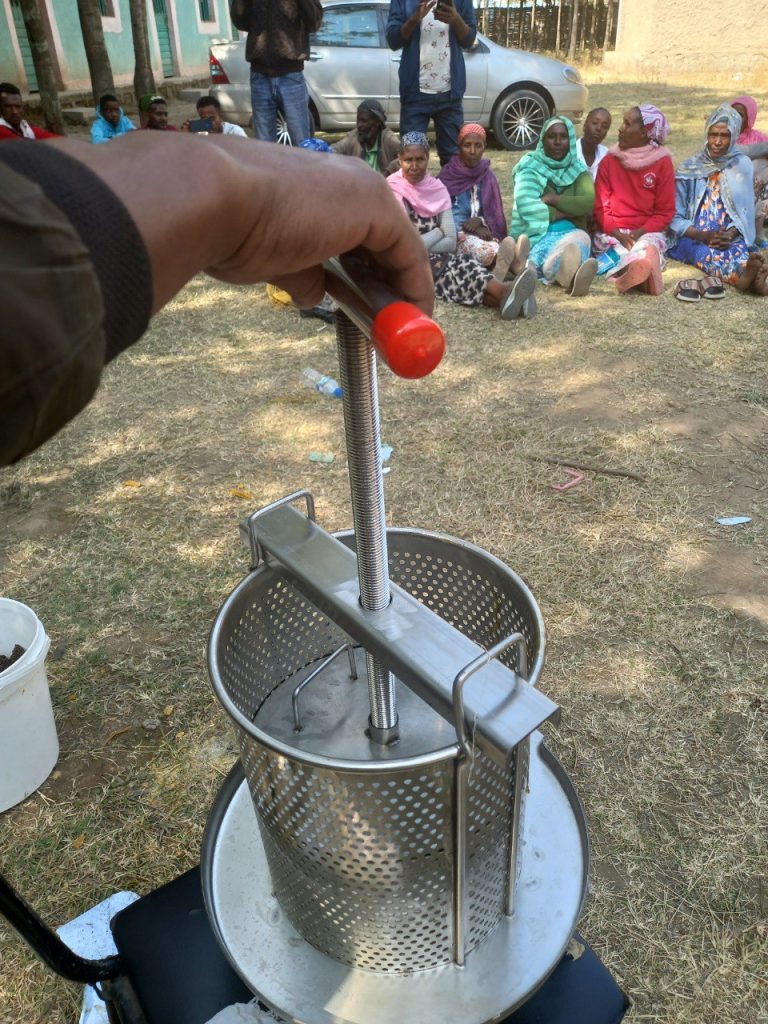
Copyright: GIZ/Bezuayehu Gebremichael
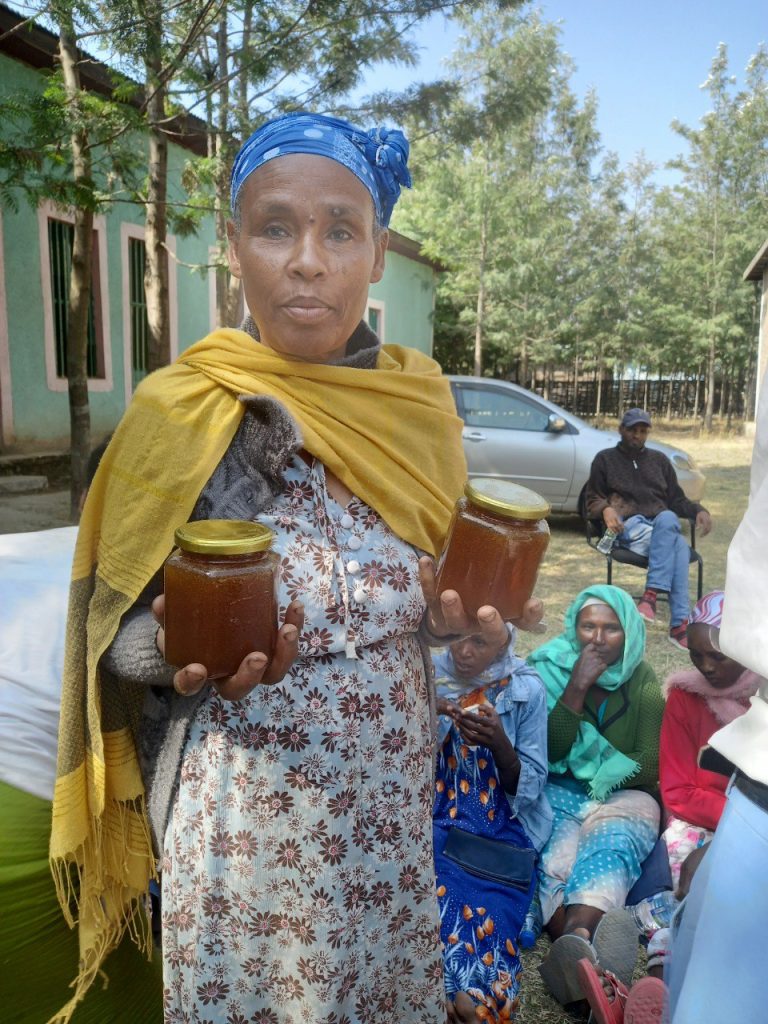
Experts from the Wereda Livestock and Fisheries Office took the lead in organizing the apiculture training, selecting and inviting trainees. The training was held at Hawassa Zuriya Wereda, Dore Bafano town, and was divided into two rounds of a seven-day training between 28th November and 19th December 2022. Two people attended from each of the 40 farmer households over the two rounds. 30% of the selected trained households are led by women, and it was key to reach as many female trainees as possible with the training, as women bear a significant share of work while being often excluded from decision-making processes. During the training, women were actively participating, interacting as well as answering questions from other participants. Several of them pointed out that they will be committed to irrigating bee floras and monitoring their bees daily.
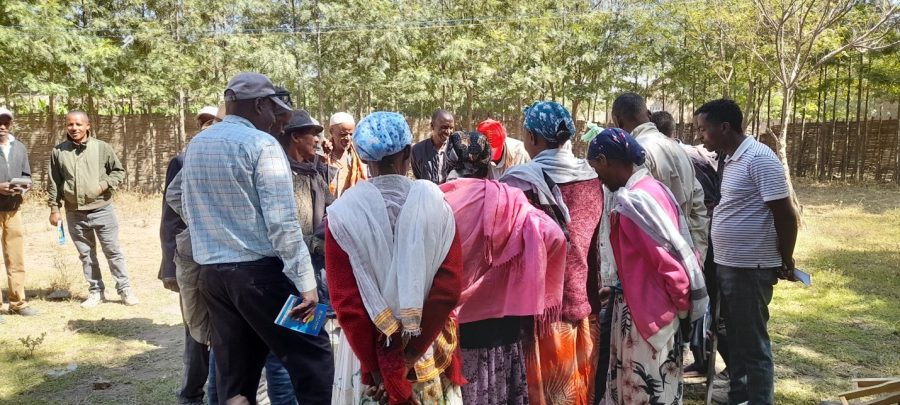
Theoretical sessions contained technical aspects of apiculture like the pollination process or the importance of flora calendars. The larger part of the training however consisted of practical sessions, in which participants familiarized themselves with the beekeeping equipment, learnt how to process beeswax, how to manage a swarm, dividing and uniting colonies, curing diseases and processing honey.
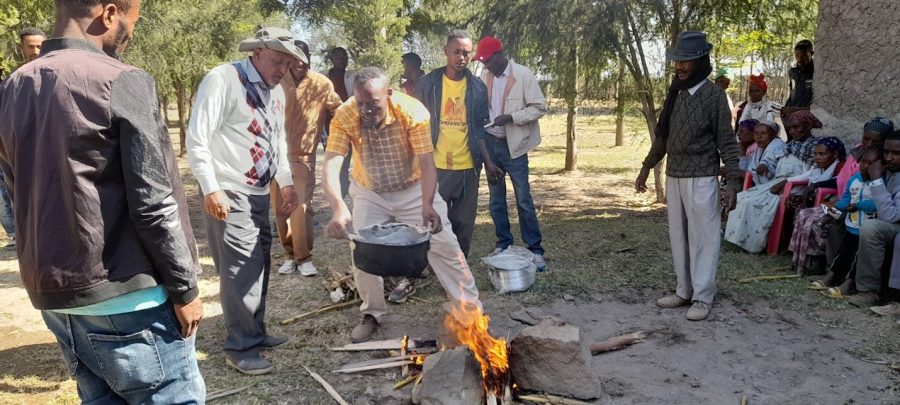
Necessary skills to establish honey cooperatives
During the practical sessions, the participants worked for example on melting and processing beeswax, printing casting moulds, and foundation sheets. They also discussed their personal experiences and learnt from each other during group exchange sessions.
Part of the training was also capacitating trainees to establish a honey producing and processing cooperative. Hence, in groups they developed action plans which include the set-up of selecting committees, business plans, and a concrete way forward for the cooperative. Every group presented their action plan to the rest of the members. The collective production, processing and selling of honey through a cooperative is essential for communities to establish themselves on the market and negotiate fair prices for their products.
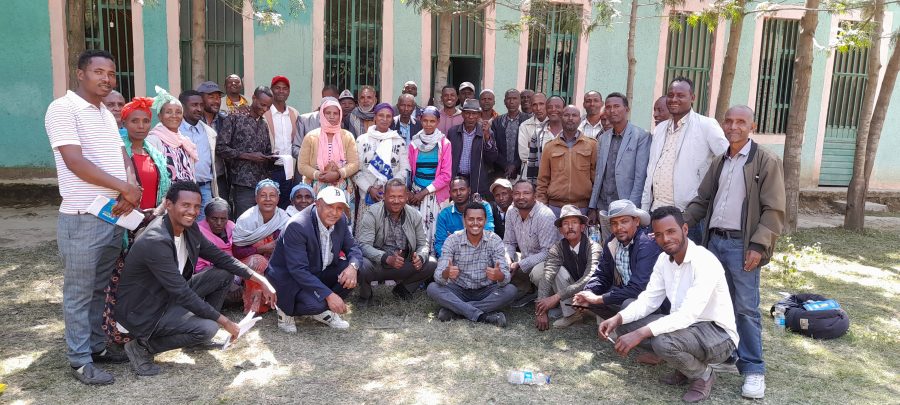
Diverse livelihoods make resilient communities
Communities basing their income on diverse livelihoods are more resilient towards natural disasters, climate change or other unpredictable events. They are able to manage the available natural resources in a more sustainable way, allowing them to make a living from the environment while preserving it for future generations. Protecting Lake Hawassa partners strive to improve the joint management of natural resources around Lake Hawassa, for enhanced economic development and improved livelihoods of local communities.